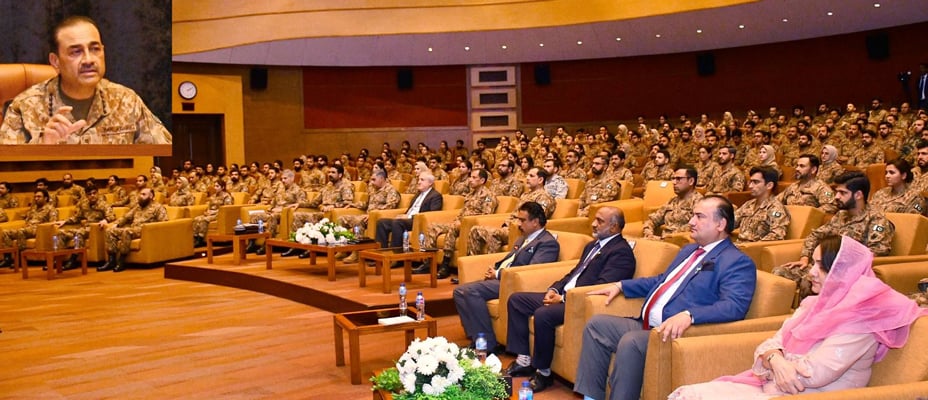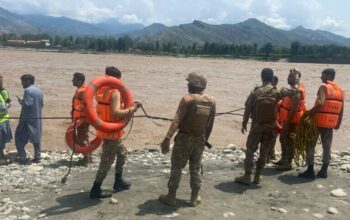By Staff Reporter
ISLAMABAD: Pakistan’s army chief has termed India the region’s foremost sponsor of terrorism, sharpening the divide between the two nuclear-armed neighbors following a deadly clash earlier this year.
Field Marshal Syed Asim Munir, Chief of Army Staff, made the remarks on Friday during a speech to officers of the 52nd Common Training Programme.
“India is the largest sponsor of terrorism in the region,” he said, urging neighboring countries to remain vigilant against what he called Indian proxy networks. He pressed Afghanistan, a “brotherly Islamic country,” to deny space to India’s alleged terror proxies, which he referred to as Fitna al-Hindustan and Fitna al-Khawarij.
The comments come after last month’s violent confrontation, the most intense fighting between Pakistan and India in decades. The conflict began with an attack in occupied Kashmir that killed 26 people, which India attributed to Pakistan-supported militants. Islamabad denied the claim, asserting that India launched unprovoked strikes that killed over 50 people. Pakistan retaliated by downing Indian jets and targeting military sites. The United States mediated a ceasefire, but tensions remain high.
Field Marshal Munir framed Pakistan’s military response, known as Ma’rakah-e-Haq, as a resolute stand against India’s aggression. “We have never bowed before India, nor will we ever,” he said, rejecting what he described as Indian dominance in the region.
Munir attributed Pakistan’s success in the clash to divine support, stating, “Allah’s support was with Pakistan because the country stood on the side of truth.”
He also criticized India’s domestic policies, linking its alleged role in terrorism to “discriminatory and violent treatment of its minorities, particularly Muslims.” Munir emphasized Pakistan’s commitment to regional stability and good relations with Afghanistan, while calling on Kabul to resist serving as a base for India’s supposed proxies.
In his address, Munir stressed the need for national unity, calling the government and bureaucracy essential to social cohesion. He urged officers to prioritize a unified Pakistani identity—Pakistaniyat—over regional loyalties. “Nations that forget their history lose their future,” he warned, encouraging the development of courage, competence, and character, with an emphasis on the latter.
Separately, Pakistan’s naval chief, Admiral Naveed Ashraf, spoke at the Pakistan Navy War College about the importance of advanced technology and innovative strategies in modern warfare. Referencing the recent conflict with India, he highlighted the shift away from conventional tactics to maintain a military edge.
“The conventional, one-dimensional study of warfare is now outdated,” Ashraf told graduating officers of the 54th Pakistan Navy Staff Course. “Winning future wars demands not only a re-evaluation of legacy warfighting strategies, but also the development and maintenance of a future-ready workforce that is intellectually astute and technologically proficient.”
Discussing the maritime challenges facing Pakistan, the naval chief said the Indian Ocean Region (IOR) was “fluid and contested.”
He also highlighted that new geopolitical realignments and ongoing power rivalries in the region, saying they were affecting the security environment in the IOR.
Copyright © 2021 Independent Pakistan | All rights reserved




